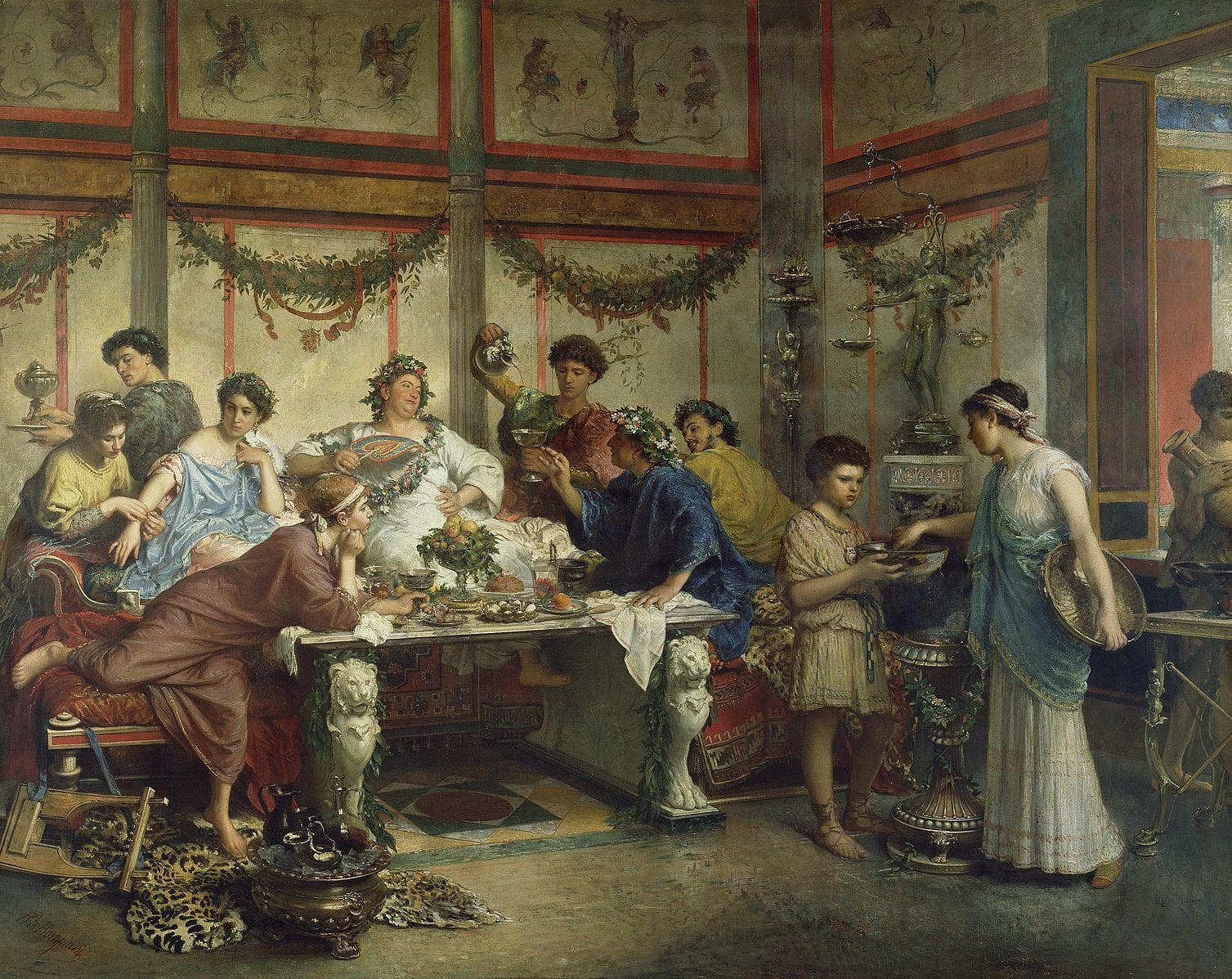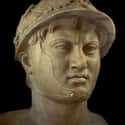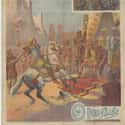-
(#11) Decebalus
The names of Romania and Rome might have similar etymologies, but the people of the two areas weren't friends in antiquity. Meet Decebalus, king of the Dacians (who lived in what is now Romania) in the first century CE. Like many who opposed Rome, Decebalus united a bunch of individual tribes into one power to oppose their powerful enemy.
With his men behind him, Decebalus attacked the Roman province of Moesia and riled up the Parthians. He'd beaten the Romans a few decades earlier under the tyrant Domitian, but was now facing a new opponent: Emperor Trajan, who flitted to Dacia in 101 to head off Decebalus. Things didn't go well, so Decebalus tried to negotiate in 102 to no avail: Trajan won and made Decebalus a client king (basically a monarch who ruled by the grace of Rome).
A few years later, Trajan got fed up and attacked Decebalus again (but who knows who started it?). Decebalus wound up losing again and committing suicide in 106, a year before Dacia officially came under Roman rule. Modern Romanians think of him as a national hero; one guy even built a colossal head of Decebalus for all to see.
-
(#13) Pyrrhus of Epirus
- Dec. at 47 (318 BC-271 BC)
A "Pyrrhic victory" refers to a battle won at so high a cost the winner is more devastated than the loser. Where did this come from? A king named Pyrrhus of Epirus, a northern Greek realm, who ruled in the late fourth century and late third century BCE. He was one of Rome's first big enemies.
The problems started when a Italian city-state Tarentum asked Pyrrhus for a hand against Rome. Pyrrhus came on in to kick the sh*t out of people in 280 BCE with foot soldiers and elephants; he helped Tarentum win the battle, but lost so many of his own men the victory really wasn't much of a victory after all.
Pyrrhus went up against Rome again, at Ausculum, won, and yet once more suffered a lot of casualties. Eventually, he lost (badly) to Rome in 275 BCE, and went home to Greece.
-
(#7) Eunus
A Syrian slave-turned-rebel, Eunus was a rebel for the ages. He was enslaved in Sicily in the second century BCE, but didn't stay down for long, organizing 70,000 other slaves into an army along with fellow slave-rebel Cleon. Eunus had a way about him; his charisma led people to believe he was a magician or prophet. He took the city of Enna and turned himself into a king named Antiochus, but a few short years later, a Roman consul squashed his rebellion by 132 BCE and put Eunus in prison.
-
(#2) Hannibal
- Dec. at 64 (246 BC-182 BC)
In the third century BCE, the two greatest powers of the Mediterranean basin - Rome and Carthage - squared off in three separate Punic Wars. The soldiers of Carthage, located in north Africa, were led in battle by the brilliant general Hannibal. After Rome won the First Punic War, Hannibal consolidated power in Carthage's colonies in Iberia and went HAM on one of Rome's Spanish towns, kicking off the Second Punic War.
Hannibal got a giant force together, including almost 40 war elephants, and marched across the Alps into Italy. He eventually won a stunning victory at Cannae against the Roman legions, but was forced to go home after the Romans invaded Carthage itself. The Roman general Scipio won another big battle near Carthage, leaving the Carthaginians with only their North African lands....
Hannibal wasn't into it, but he was forced into exile and hung out with the Syrians, then the people of Pergamum in Asia Minor (where he threw buckets of snakes at his enemies). Eventually, Hannibal got super-paranoid and, afraid his enemies were coming for him, poisoned himself where he was hanging out in Turkey.
-
(#10) Mithridates VI of Pontus
- Dec. at 69 (131 BC-62 BC)
Best known for creating poisons and antidotes in his Black Sea kingdom, King Mithridates VI of Pontus battled against Rome for control of most of Asia Minor. He was Rome's last main challenger in the East for centuries, but the conflict burned hot: At one point, he slaughtered upwards of 80,000 Romans who lived in Asia Minor. The Romans waged three Mithridatic Wars against this monarch, sparked in part by Mithridates's slow but steady conquest of much of the lands making up modern Turkey.
The First Mithridatic War (89-85 BCE) ended in Mithridates's defeat by future dictator Sulla, while the Romans raided his territories to provoke the Second Mithridatic War (83-81 BCE). The third war lasted the longest (73-63 BCE), beginning after Romans occupied Bithynia, which Mithridates thought of as his; eventually, he fled and Romans tracked him down. Allegedly, unable to poison himself because he'd consumed so many toxins and antidotes, he made his bodyguard kill him with a sword.
-
(#9) Vercingetorix
- Dec. at 36 (81 BC-45 BC)
Julius Caesar almost met his match in Vercingetorix of Gaul. Caesar invaded what is now France/Germany in 58 BCE, which he famously chronicled in his memoir The Gallic Wars. The Celtic tribes there didn't take his genocide lightly. Rebellions bubbled for several years; a bunch of Gallic tribes united and made Vercintegorix of the Arverni their head warrior. This organized military action made Caesar come across the Cisalpine Alps to head off the Celts.
Several years of raids and minor battles climaxed in late 52 BCE, when Caesar and the Gauls met at Alesia. The Romans besieged the epic fortifications surrounding this fortress; three weeks later, Vercingetorix and his supporters were pretty much devoid of food or supplies. Caesar broke the Gallic forces and took Vercingetorix back to Rome with him in chains; the Gallic chieftain died there years later.
New Random Displays Display All By Ranking
About This Tool
The Roman Empire was once the most powerful country in the world but gradually collapsed after its history lasted for thousands of years. From military failures and taxes to natural disasters and even climate change, historians have analyzed the collapse of the Roman Empire for a variety of reasons. The most direct reason for the decline of the ancient Roman Empire was that it suffered numerous attacks from external enemies and military failures.
With the rise of many powerful opponents, the division of classes maintained by honor and interest since the ancient Roma no longer makes any sense. The random tool lists the 13 most formidable enemies Roman Empire ever faced.
Our data comes from Ranker, If you want to participate in the ranking of items displayed on this page, please click here.
















